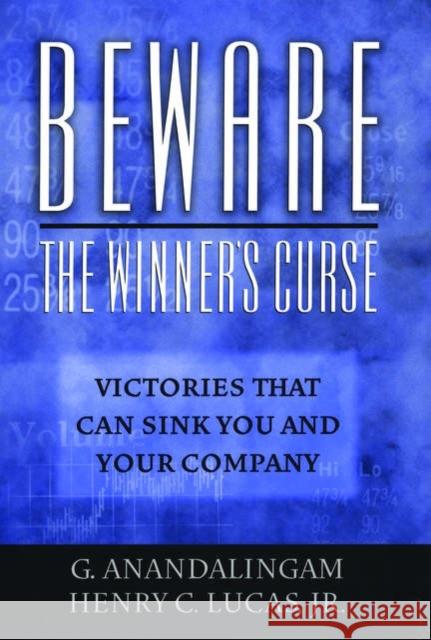Beware the Winner's Curse: Victories That Can Sink You and Your Company » książka
Beware the Winner's Curse: Victories That Can Sink You and Your Company
ISBN-13: 9780195177404 / Angielski / Twarda / 2004 / 256 str.
In the roaring 1990s, many companies seemed to claim great victories-acquiring another company, obtaining state-of-the art technology, or hiring a potential CEO savior-only to find that they had made a great mistake. The term "Winner's Curse" was coined by economists to explain an effect commonly observed in auctions. In such situations, since the winning bidder is usually the most optimistic about the value of the item being auctioned, there is a very good chance that the bid will be more (sometimes much more) than the item is worth. So a company that overvalues a good or service, or bids higher than its value has the potential of experiencing this Winner's Curse.
In this book, G. Anandalingam and Henry C. Lucas, Jr. expand the model of the Winner's Curse to explain how companies like Tyco, MCI-WorldCom and Bank One overpaid for acquisitions, and how shareholders suffered as a result. They elucidate the disasters that happened during the rush to acquire new technologies and illuminate the reasons that companies that were seemingly pioneers in the dot-com era fell by the wayside. Beginning by exploring the psychological, personal and market factors that can encourage a decision maker to overvalue an asset and experience the Winner's Curse, the book goes on to examine several case studies, including the disastrous wireless spectrum auctions that have devastated the telecommunications industry, and the dot-com bust. It concludes by discussing ways to avoid the Winner's Curse, calling for major changes in the behavior of CEOs and members of boars of directors, as well as the use of powerful techniques for analyzing decisions, including a systems approach to decision making, scenario analysis and game theory.











